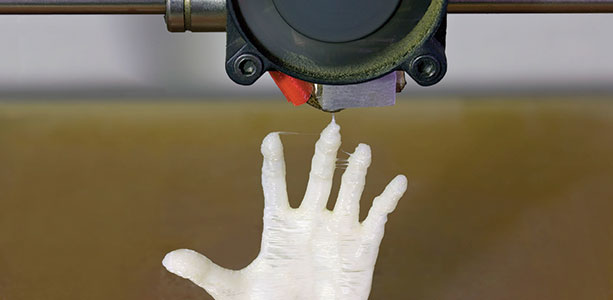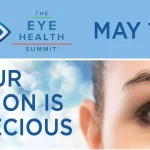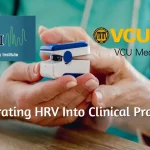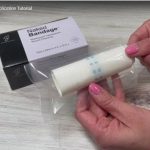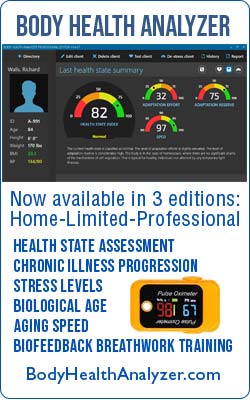Worldwide Medicine Update in Four Intense Days
Five hundred of the world’s best medical minds just met for four days in San Diego to collaborate on solutions to what Singularity University, the organization responsible for putting on the event, calls Global Grand Challenges. Rather than a focus on case studies and peer-reviewed journals, Exponential Medicine has been focused on emerging exponential technologies— technologies that are advancing at an exponential rate—and their implications across the full healthcare spectrum.
As I sat through one mind-bending presentation after another, I learned about advances in gene therapy, ingestible nanobots, robotic limbs that move through brain signals, and as with driverless cars, the advent of robotic surgery allows more complex yet safer procedures, and with improved outcomes. We learned about the use of a 3-D printer to make surgical instruments at a fraction the usual cost—particularly useful in hard-to reach areas of the world. And there were printers that could produce organs and other body components!
Ray Kurzweil, a founder of Singularity University, spoke about the future of our brains—like being able to download information directly from the cloud (a dream of many, for sure)! Caveat: although no one seemed concerned about this, I believe that we’ll need to do more thorough research on the effects on our physiology of the constant EMF exposure of both external monitors and implants, and how to protect ourselves from any negative effects.
There were presentations about regulatory issues, ethics, the future of medical education (hint: nothing like it is now), and resurgence of research on the use of psychedelics for psychotherapy by Dr. Anthony Bossis of NYU whose work was well described in the New Yorker article, “The Trip Treatment.” In fact a documentary on that topic for which I was interviewed was released.
Tikkun Olam: Healing the World
Arnon Zamir, one of the presenting Faculty members, is the CEO of TOM or Tikkun Olam Makers, where tikkun olam is a strong Jewish tradition of positive social action. A program of the Reut Institute, meaning “vision” in Hebrew, a Tel Aviv-based think tank, it recently received a generous grant as part of its Google Impact Challenge focused on making the world more accessible for people with disabilities.
TOM brings together strategic thinkers, engineers, designers and project managers to solve unmet social challenges in disadvantaged communities. Zamir and his team were on-site in the Innovation Lab, collaborating in a real-time “makeathon.” Their task was to create a series of custom devices that will help Stacy, a local San Diego mother and honored guest of TOM, to solve an array of problems that all of her three young boys experience as a result of a serious genetic disorder that leaves them non-verbal and impaired in many other ways as well.
The solutions include an effective lock to keep the kids out of the dangers (think knives) lurking in their kitchen, a “finger-steadier” so they can more accurately utilize their iPads which they use for communication, since they lack speech; a device to track and predict their seizures, and a few more. Not only did the makeathon bring in top experts from around the world, but also utilized a number of individuals in the awesome brain-bank attending the conference, for on-the-spot problem solving. You can imagine the difference this has made in Stacy’s life and the lives of her kids. Moreover, all the tools produced are open source: the patterns are put on-line for anyone else to use, multiplying their benefits many-fold.
I sat down with Arnon and was amazed at the dozens of stories just like Stacy’s: people with unique disabilities, presenting unusual challenges that, regardless of socioeconomic standing, are overcome by a spirit of collaborative innovation.
“It has always been important to me that my work be engaging and challenging. TOM addresses problems on the margins, the exceptions to the rule, the most complicated situations,” Zamir said. “Alongside exponentially growing technologies, our ability to address neglected problems has also improved tremendously. It’s been a pleasure to receive such great support from Singularity University at Exponential Medicine.”
Functional Medicine Meets High Tech
While much of the subject matter focuses on the latest and greatest technologies, some presenters start with much more traditional subjects—but with major science added in. Dr. Mark Hyman, Medical Director at Cleveland Clinic’s Center for Functional Medicine, a collaboration between Cleveland Clinic and the Institute for Functional Medicine (IFM) focused his keynote on the oldest drug known to humankind: our food.
The premise of functional medicine is that diseases themselves do not exist. Rather they reflect a disturbance in the functional dynamic network, a continuum, and cross all body systems. All disease is disordered function—and the physician’s job is to uncover the imbalances and restore proper function. It is the kind of medicine I have practiced for years. It certainly works well, and follows the Hippocratic oath of “first do no harm.”
Dr. Hyman shared the story of Isabel. When he first met with her, the 10-year-old had been suffering for years from a wide array of symptoms associated with mixed connective tissue disease, plus the side effects of an array of strong medications, such as prednisone, and methotrexate. Her diet? Sugar, sushi, tuna, and dairy, all contributed to her problem: her lab tests revealed gluten and dairy sensitivity; a specialized urine test revealed high levels of mercury (think sushi), and so on. When he reduced the gut inflammation by removing these triggers, prescribed anti-fungal and other nutritional support, and allowed her body to approach balance, she was much better in two months, with clear skin for the first time. One year later, she was normal including her labs. He showed a moving video of her describing how ill she had been, and how now she was able to play like other kids, ride her horse, and just plain feel great.
“Food often works better drugs than drugs,” Dr. Hyman said. “Food is more than calories—it’s code that tells our bodies how to respond.” This is not news to those of us who practice functional medicine, but he certainly had a powerful impact on the largely conventional medical audience, including a packed break-out session.
The social environment also has a significant effect on our health. Understanding the impact of social support systems on day-to-day health, Dr. Hyman recognized that popular evangelical pastor and author, Rick Warren’s church had a problem. “You’re a fat pastor, and you’ve got a fat church!” Hyman expertly diagnosed. Together, using the church as a social support system for behavior and diet modification, the congregation lost a collective 250,000 pounds in the first year, and went on to become a powerful movement, reflected in and further by their best-selling book along with Dr. Daniel Amen, The Daniel Plan, that emerged from it.
Daniel Kraft
Exponential Medicine’s bold and fearless march into the future is led by Dr. Daniel Kraft, the chair of the event and the medical track at Singularity University. Daniel’s biography is one of a serious high-achiever: Harvard and Stanford-trained pediatrician, oncologist, fighter jet pilot (seriously), and innovation activist, among others.
After four years in its current format, Dr. Kraft told me he has no plans to expand the conference, despite it consistently selling out. He believes it’s important to maintain the balance of diverse professionals, covering multiple fields of research and practice in a small setting to allow the participants to really connect.
“My original vision for the conference was to convene the best minds from the fields of medicine and technology who could truly “inspire and drive change,” said Kraft. “We have reached critical mass without losing the benefit of a tight knit community and I couldn’t be more grateful to all of the thoughtful leaders and attendees who have helped to make this visions a reality.”
The beauty of the four-day experience is its ability to bring together some of the world’s leading experts across a number of fields in a collaborative and inspiring environment. The recurring themes throughout the four-day experience focused on convergence—different industries or disciplines colliding to create unexpected results—and democratization. Speaker after speaker reinforced the need to break down the siloes that manifest themselves in the medical field, to make information available to allow the advances in fields like artificial intelligence and machine learning to identify patterns that humans simply cannot.
I see real progress here in creating enhanced collaboration among medical specialties, and between medicine and technology. I look forward to seeing the expanded use of Artificial Intelligence to gather and analyze data from the field of functional medicine, providing the research to highlight the most effective approaches to diagnosis and treatment. With Dr. Hyman at the helm of the Cleveland Clinic’s Center for Functional Medicine, this is already in place and I look forward to having widening use of these methods to not only cut medical costs but to further our main goal—the health of our patients.

